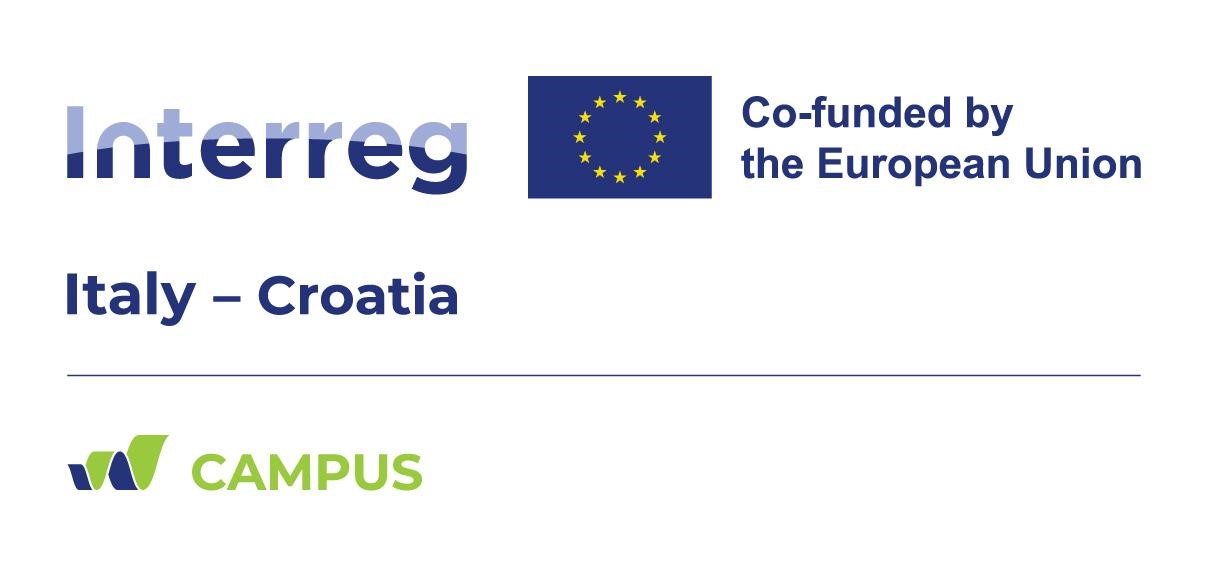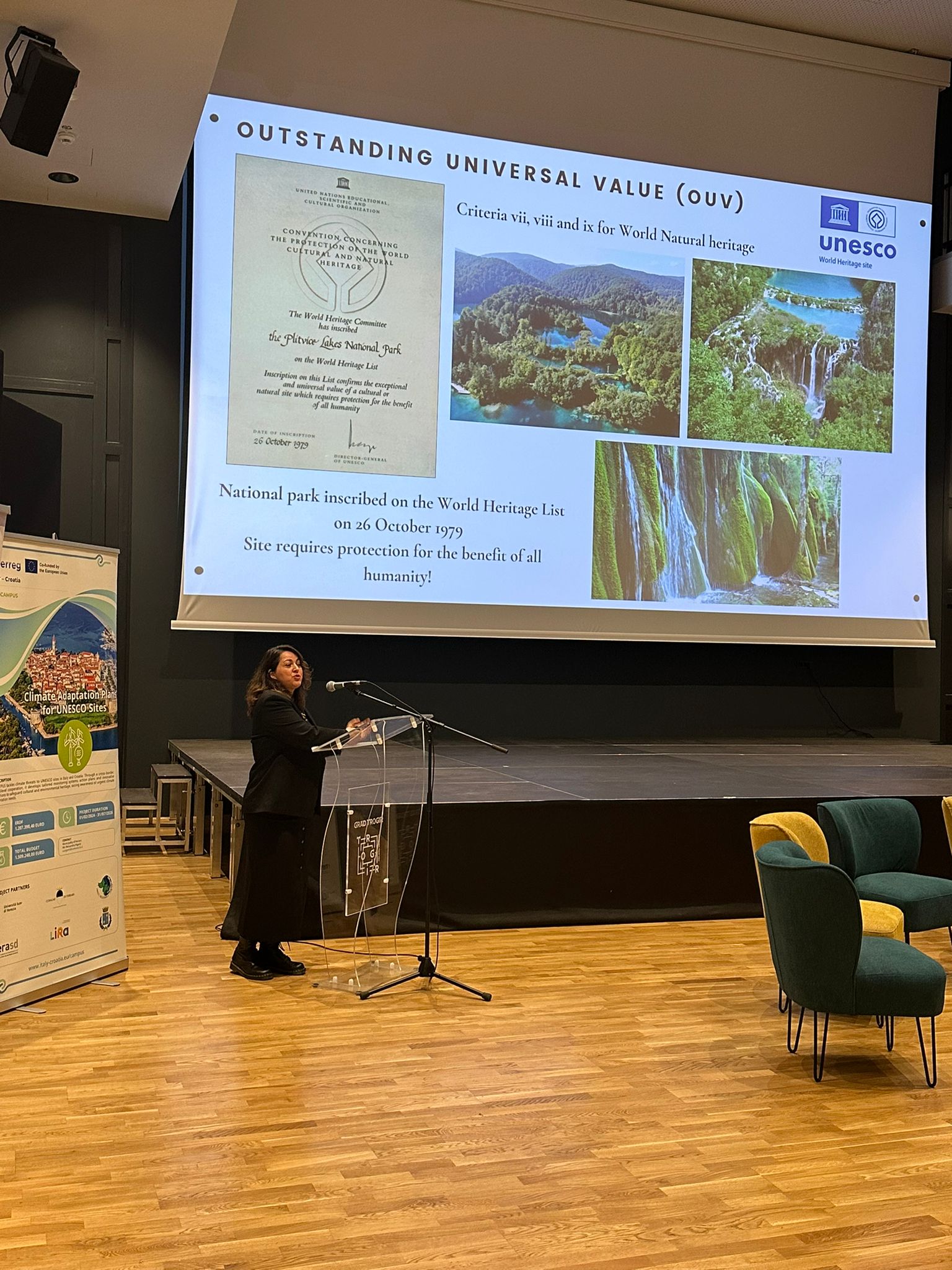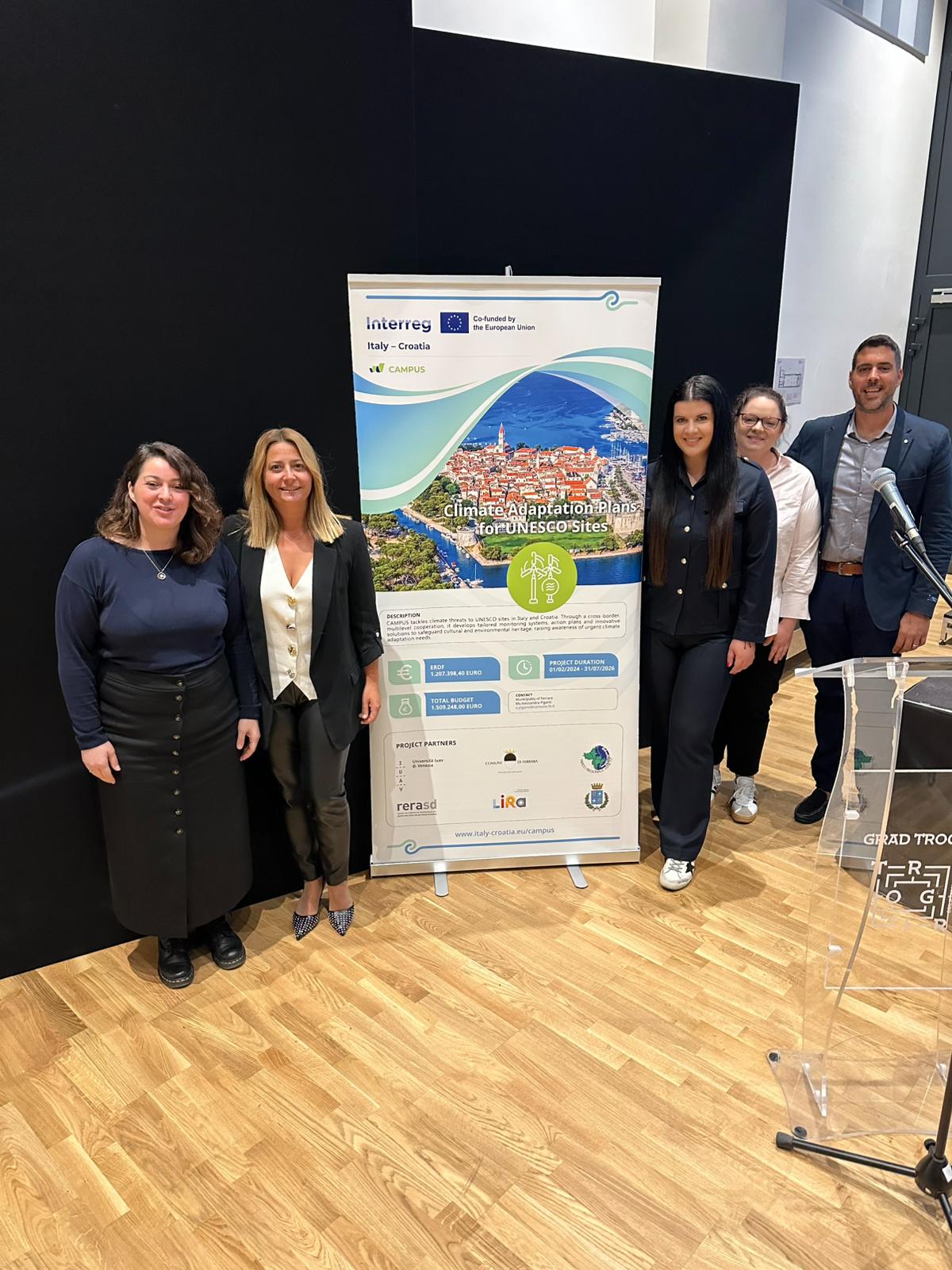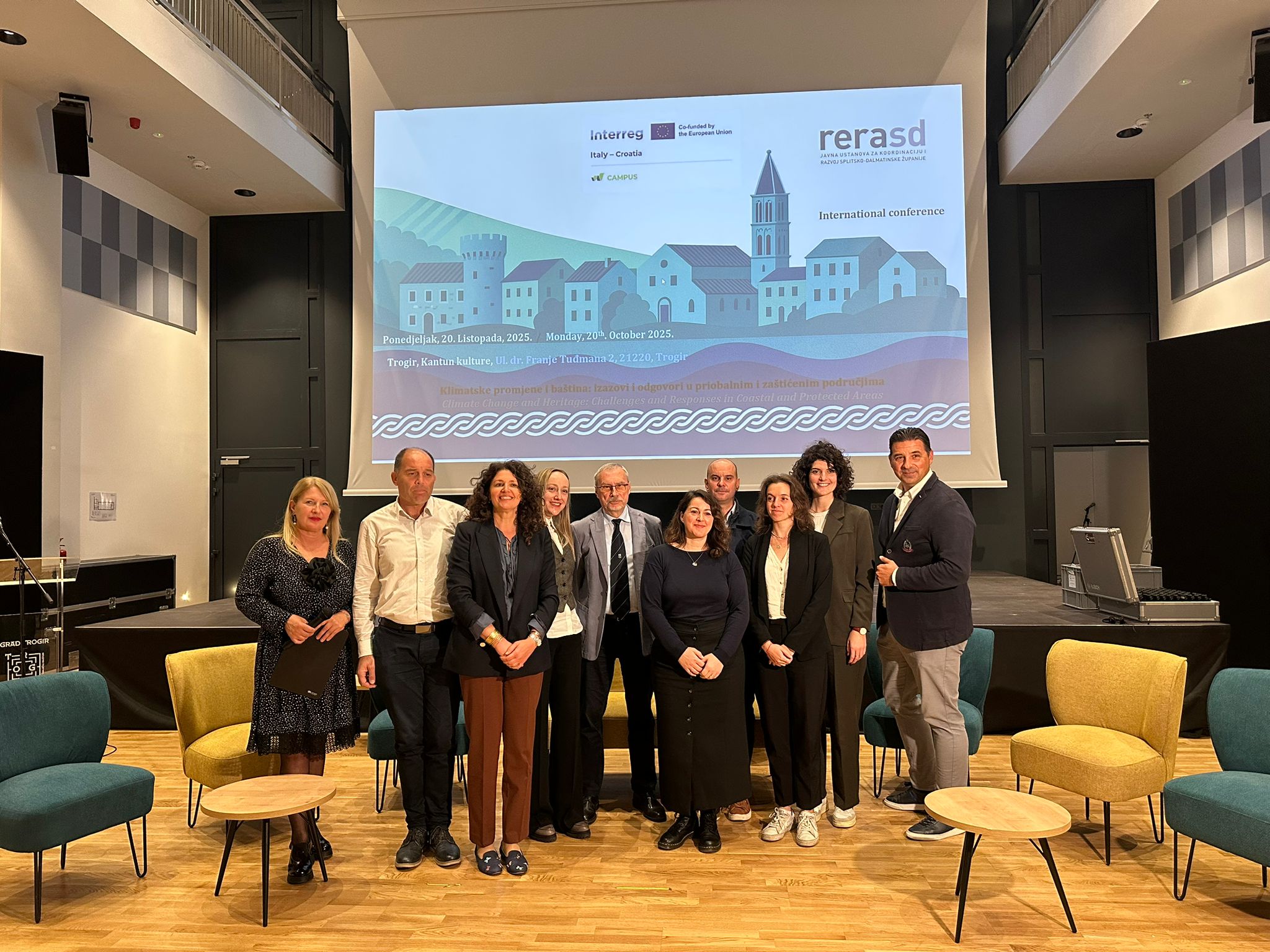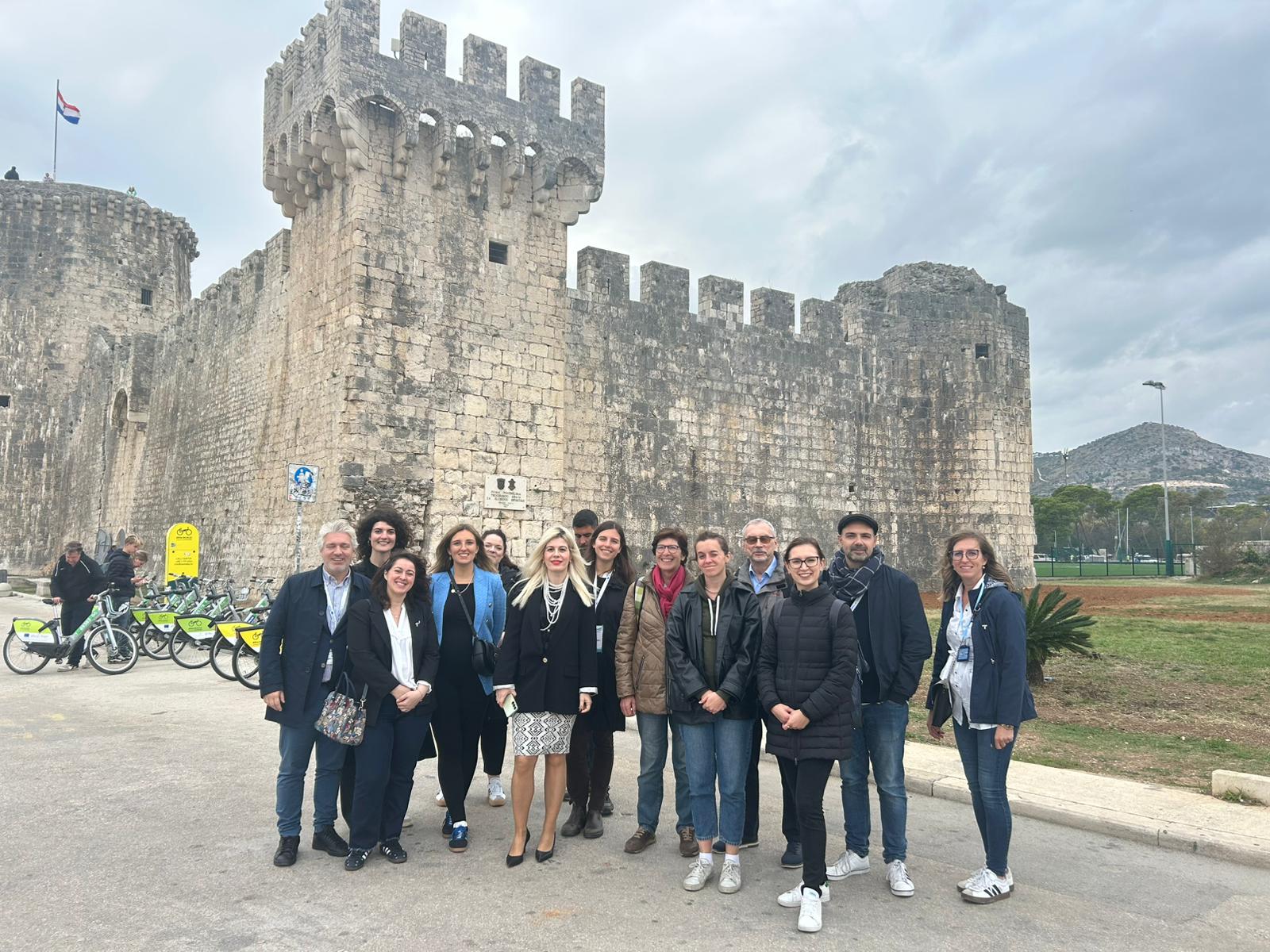In the city of Trogir, a UNESCO cultural heritage site, an international conference entitled “Climate change and heritage: challenges and responses in coastal and protected areas” was held on October 20, 2025. The conference is part of the project activities of the project CAMPUS – Climate Change Adaptation Plans for UNESCO sites, which is implemented from the cross-border cooperation program Interreg Italy-Croatia 2021-2027, and in which the Plitvice Lakes National Park participates as an associated partner.
Given the topic of project activities related to climate change, the key lecture at this gathering was given by Prof. Dr. sc. Mirko Orlić from the University of Zagreb, presenting global trends in climate change and projections. Conservator from Trogir, Jasna Popović, gave a presentation on the UNESCO cultural heritage management, the topic of the impact of climate change on natural heritage using the example of the Plitvice Lakes National Park was presented by Maja Vurnek, an employee of the National Park Conservation Service. As the main activities in the work package 1 of the CAMPUS project are related to the development of vulnerability and multi-risk assessments for UNESCO sites, representatives of the University of Venice, Silvia Zannin and Federica Parlato, presented the results so far for the areas included in the project. Risk maps of cities and modelling for Trogir and Stari Grad on Hvar were presented by Ivan Carević, along with the results of surveys conducted with residents regarding their experiences with climate change. From the Ministry of Culture and Media, Petra Smajić gave a lecture on the topic of risk management for cultural heritage and the legislative framework, while Martin Bućan from Split-Dalmatia County presented the Desirmed and A-AAGORA projects.
At the end of the presentations, a round table was held on the topic “From global science to local action”, moderated by Sandra Bračot, and the discussion was attended by Professor Mirko Orlić, Vinko Trbušković, Petra Smajić and Martin Bućan.
The second day of activities was reserved for a project meeting of partners, about the activities carried out so far, future tasks in further work packages, financial construction, and the outline content of the Climate Change Adaptation Plan was presented, which will be further developed in the coming months.
For more information about the CAMPUS project, visit https://www.italy-croatia.eu/web/campus.

